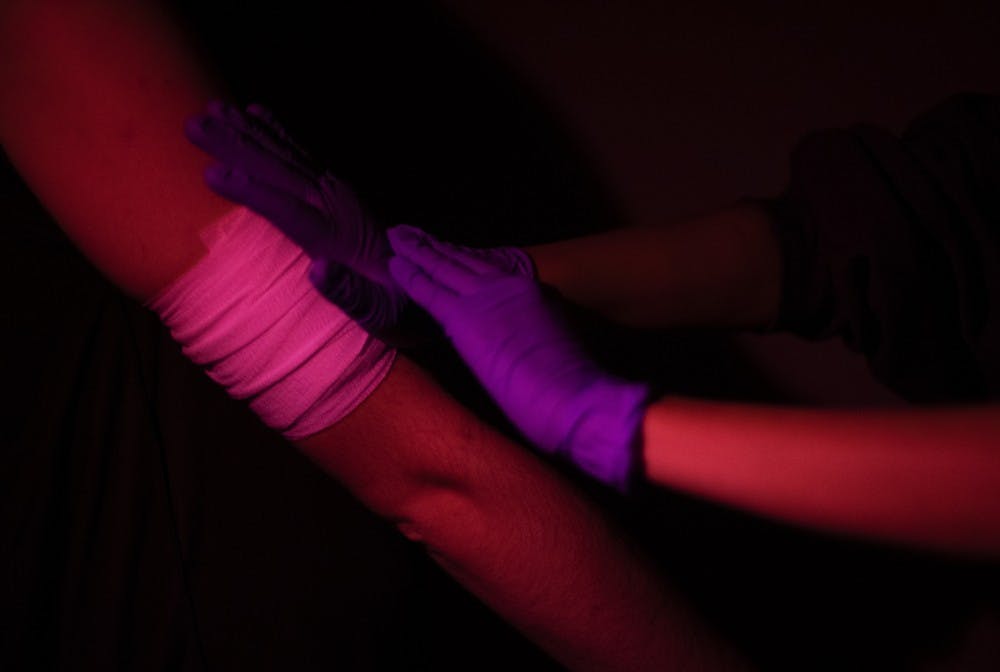“Our form of ALICE training is very cooperative, informative and I just think that should be ongoing for all campuses, and I don’t think it is,” Baker said. “To me, that’s probably the biggest shame I could say because I’ll tell you if this ever touches you, it is something that will change you forever.”
At UNC-Chapel Hill, Perry said trainings will soon include hands-on activities, so trainees can feel what it’s like to hide as a helpless victim or an active participant. Trainings are available to students at the UNC-Chapel Hill Police website. The University is also working on its own campus-specific training video.
These safety conversations are not only taking place at universities, but also in elementary, middle and high schools. Perry, who was the Florida State University police chief during a shooting at the university in 2014, believes these conversation must be had.
“It’s very difficult to have to talk to an elementary student about run, hide, fight or to be aware of your surroundings,” Perry said. “It’s just where we are in our place in time in history. But I think it’s irresponsible not to have that conversation. It’s irresponsible for any community not to prepare for an event, and I still find communities, even colleges and universities that are not as prepared as they should be because they still have this feeling that it won’t happen here — we’re so quiet. We’re so comfortable, and we know each other. But these situations are just a moment away from happening anywhere in the country.”
The administration at UNC-Chapel Hill is not the only one that has pushed for increased security measures. Students themselves have taken their safety into their own hands by creating their own chapter of Stop the Bleed. UNC-Chapel Hill medical student Sean Donohue teamed up with other medical students and undergraduate students to bring UNC-Chapel Hill its own chapter in October 2018.
Stop the Bleed provides trainings on how to pack wounds and tie a tourniquet in case of a mass casualty event. The group has offered many trainings through the UNC Trauma Department and Buckley Public Service Scholars. UNC-Chapel Hill Stop the Bleed founding member, senior Valerie Evivie, noted that young people often lead the way in the gun control and environmental movements because they are the most impacted — and this is the case for them as students at a university.
“Although we’re not at the very top of the administrative ladder, we’re still very impacted by our public safety plans,” Evivie said. “Because it impacts us, we feel like it’s our responsibility to take action, to make sure that we’re doing all we can to ensure our own security and also the security of our peers.”
The organization has also received $5,000 in funding from the Carolina Parents Council, helping to, by January, order and disperse bleeding control kits wherever AEDs (Automated External Defibrillators) are found in buildings across campus.
Baker said in Charlotte, the university police department is working to employ inexpensive ALICE active shooter response kits in classrooms that provide ways to secure doors without locks.
In the aftermath of the Charlotte shooting and the perpetrator’s sentencing last month, Baker said there has been sadness but also resilience.
“You can’t just say we can’t do anything, we can’t move beyond this, we’re paralyzed,’" Baker said. "I haven’t seen that at all. I’ve seen a vibrant campus community that has responded with love and concern, and at the same time, wanting to train a whole lot more than they ever did before based on what they’ve seen.”
Although members of the campus community may feel more comfortable with running and hiding in case of a mass shooting, Jeter wants students to understand there may be situations in which they have to fight.
To get the day's news and headlines in your inbox each morning, sign up for our email newsletters.
“The run and the hide, that’s a natural reaction,” Jeter said. “But unfortunately you may be in a situation where you do have to defend yourself and as uncomfortable as that may be, we would be doing our campus community a disservice if we did not empower them with the knowledge and the reality that you may be in a scenario where you have to use all means available to you to protect yourself from a risk that is presenting itself to you: imminent danger in the area.”
Both the UNC-Chapel Hill Police’s Shots Fired on Campus and Stop the Bleed’s trainings are resources students can access to prepare for this type of event.
For UNC-Chapel Hill Stop The Bleed, members feel the trainings give students and faculty agency and peace of mind if a shooting or other mass casualty events occurred. Founding member junior Neha Aggarwal said the skills are not hard and do not take long to learn. But once people walk away from the training, she said they are enabled to make a difference in a time of crisis, a need that is reflective of trends in society.
“I think it demands a lot more responsibility from people to safeguard their communities and learn skills that they can use to help their peers if the need arises,” Aggarwal said. “I don’t think this is a negative thing. People feel empowered when they complete the training. They feel a sense of civic responsibility, and I think that’s a very positive outcome even if the situation that garnered it is a very negative one.”
university@dailytarheel.com




